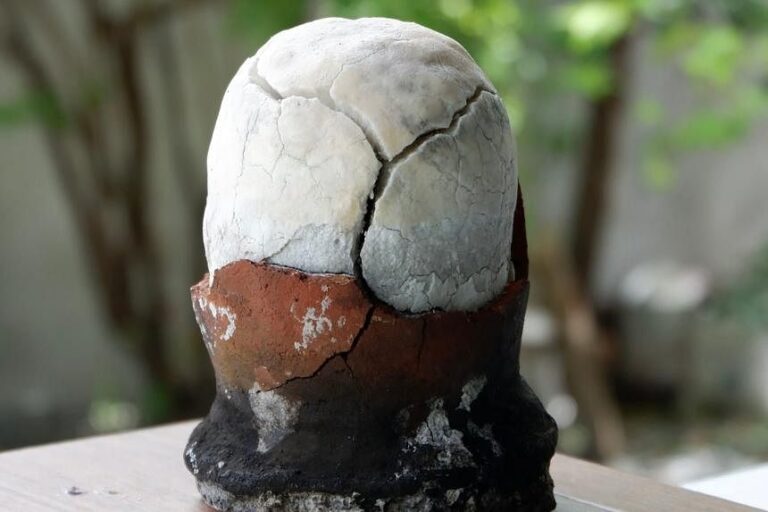Asintibuok is one of the latest Filipino ingredients making waves online.
Israeli vlogger Nas Daily featured this ingredient in one of his recent videos, which garnered over 70,000 likes on TikTok alone. In the clickbaity title, he introduced the material as “dinosaur eggs,” which is actually not the case.
Apart from Nas Daily, Recipe YouTuber Emmymade shares this recipe on her channel. Instead of calling it a dinosaur egg, she named it “the world's rarest salt.”
Asintibuoc is an artisanal salt made in Alburquerque City, Bohol Province, Philippines. Its name literally means “whole salt” in English. It's a rare heirloom ingredient that is becoming extinct because not enough people know how to make it.
The production process for Asin Tibuoc is labor-intensive and consists of many steps over several months.
In a feature on salt around the Philippines for F&B Report magazine, Naina Katibak writes: “We place the (dried) coconut shells in a coastal mangrove forest and soak them in seawater for several months, ensuring that each shell is fully soaked with the water's salt content.”
“These are then dried in the sun and slowly burned until they become ashes. The ashes are further mixed with seawater to create a smoky brine, and the mixture is then boiled down in clay pots to form solid salt blocks. To do.”
Contrary to the claims in Nas Daily's video, this salt doesn't necessarily taste like coconut.
“The taste is smoky, almost fruity. The chunks can be broken up for cooking or eating, and can be soaked or ground into a powder and sprinkled on foods. The unique taste is perfect for Asian flavor profiles. ” Katibak wrote.
Filipino food culture advocate John Sherwin Felix, also known as Locarpedia, also made this claim in a Nas Daily video.
Felix explained that the salt does not have a coconut flavor, but instead has a smoky flavor due to the process of filtering the brine through a burnt coconut shell.
The salt is now rapidly gaining popularity online, but the number of asinderos, or salt makers, who make it has dwindled to almost zero.
Mario Baluarte is one of the only surviving Asinti book makers. He learned how to make it from his grandfather and started making it when he was 7 years old, but he is now 62 years old.


